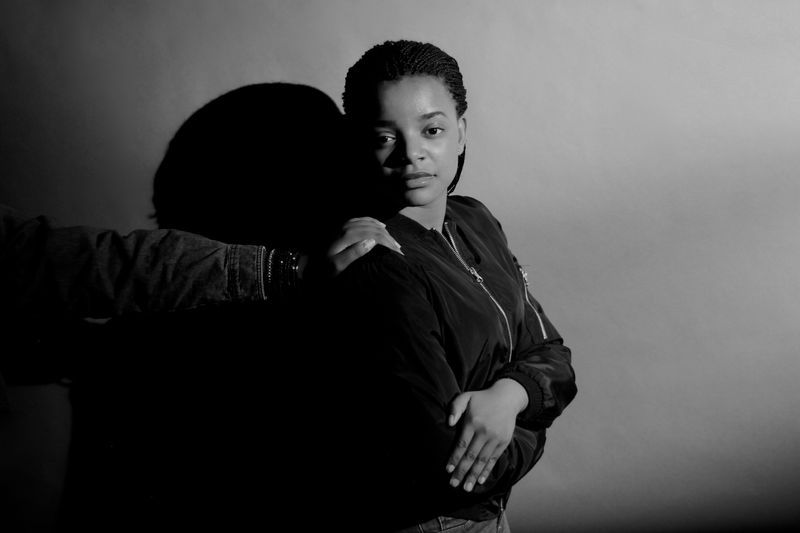We Are America
Belonging
By Diane

Lowell High School, Lowell, Massachusetts
I was born in a refugee camp in northern Zambia and lived there for 17 years.
Life wasn’t easy. I lived with my parents and my six sisters and brothers. We had to farm in all seasons in order to eat. If it was the rainy season, the plants would be watered by the rains, but when it wasn’t the rainy season we had to walk a half mile to fetch water from a pump and carry it back on our heads. We would go and come back maybe five times, carrying a 20-liter container. This was just part of our lives.
In the camp, starting in 1st grade I went to school without food. My only option was to make friends who had food. So my mission at school wasn’t to learn, but to get on these students’ good side in order to eat. These food friends and I used to cut up our class books to make paper dolls. In 3rd grade, my dad went to get my school results. They were terrible. When he came home, he asked me to show him my books. I started crying. My book had only two pages out of forty left. I held my cheeks because I knew he was going to slap me. He asked me to read two sentences. I spent two hours trying to figure out what it said. That day was my worst nightmare.
When I was 11, my dad built a grocery store in the city. He traveled five hours from the city to the camp every month. When I was 13, my dad took us to live part time in the city and part time in the camp. My first day of school in the city of Solwezi was horrible. I was in 6th grade and most of my classmates were younger. I felt so uncomfortable. My classes were taught in English. But my English wasn’t strong and I only knew a little of the local language. Kids in school called me a “caburunda” (a name they called all refugees and which meant you weren’t a part of the country). I was so mad. I always believed I was Zambian, even though I was born in a camp. But here in Solwezi I realized that I was not. I started thinking, who am I? Where do I belong if not in Zambia? I realized that if Zambia didn’t recognize me as its citizen, then I had no country to call my own.
In 2016, when I was 17 years old, my family and I came to the United States. I remember my first day of high school. People were so friendly. I was so happy that I didn’t have to worry about food because the school fed us. But mostly I was happy to be here and be part of this country. Finally I had a country that could acknowledge me. But I was so worried that I might be kicked out for any mistake I might make.
My family applied for green cards. Every morning I would ask my mom when we will get them. After almost a year, my parents and my siblings got their cards. But not me. I was so scared and I kept thinking of what would happen if I didn’t get it. But after one month I was called to get fingerprinted.
A month later I received a letter. When I opened it, I saw my green card. I was so excited I started shouting and jumping up and down. Now I feel peace in my heart. I finally feel recognized. And right now I am looking forward to becoming a U.S. citizen.
© Diane. All rights reserved. If you are interested in quoting this story, contact the national team and we can put you in touch with the author’s teacher.